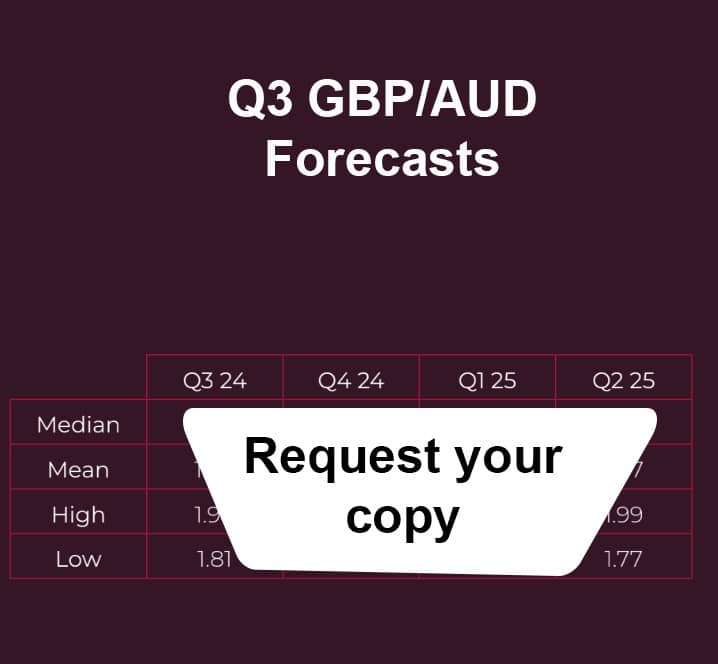Australian Dollar, Industrial Metals Weighed Down by China Plenum Disappointment
- Written by: Sam Coventry

Image © Adobe Stock
Falling industrial metal prices linked to disappointing policy developments in China are said to be weighing on the Australian Dollar.
"AUD and NZD continue to underperform as sluggish Chinese economic activity weighs on commodity prices. Iron ore future prices plunged overnight to the lowest level since early April and futures on whole milk powder prices are trading near multi-month lows," says Elias Haddad, Senior Markets Strategist at Brown Brothers Harriman.
Base metals have fallen during the past two weeks, with copper touching $9,122/t and zinc and aluminium also extending losses on July 23. Iron ore has also fallen towards $100/t, with the 62% China index below $104/t.
Iron ore is a particularly important metal for Australia as it is the country's biggest foreign exchange earner.
The Australian Dollar fell 1.45% against the U.S. Dollar last week and is a further 1.0% lower this week at 0.6619. The Pound to Australian Dollar exchange rate is looking at its third consecutive weekly advance in the region of 0.80% as it quotes at 1.9507.
Compare Currency Exchange Rates
Find out how much you could save on your international transfer
Estimated saving compared to high street banks:
£2,500.00
Free • No obligation • Takes 2 minutes
"Copper traders have been disappointed by China’s Third Plenum, which failed to provide mass stimulus rollouts to shore up the property sector," says analyst John Meyer at SP Angel. "Iron ore prices are suffering from weak steel margins, with reports of soaring steel inventories in China."
The plenum is held every five years and, on occasion, has delivered important signals of Beijing's grand economic strategy. Investors might have been hoping the Third Plenum would see authorities announce a decisive pro-growth strategy.
Such a move might have boosted commodity prices and the Aussie dollar, but the disappointment has the opposite effect.
Haddad says the plenum did not offer specific measures to deal with the root cause of China's structural economic headwind: the country’s inability to rebalance the economy away from debt-fueled investment-led growth towards consumption.
"Instead, the plenum’s final document focused on boosting investment in advanced manufacturing and improving fiscal transfers to local governments from the central government," says Haddad.
China's steel mills are the driver of demand for Australian iron exports, and margins here have been in negative territory through July, worsening notably from June.
"It’s hard to remain optimistic that China’s steel output growth will stay in positive territory in July. Steel mill margins capture both the current steel market conditions in China as well as future steel demand expectations. The recent decline in steel mill margins likely reflects easing steel demand hopes as optimism fades around the effectiveness of China’s latest property stimulus measures," says Vivek Dhar, an economist at Commonwealth Bank.
Aussie Dollar bulls were also disappointed by what appears to have been an unusual interest rate cut from the People's Bank of China on Monday.
"The move was somewhat of a dovish surprise to markets, given that most participants expected the PBOC to wait for better clarity from the Fed or the July Politburo meeting before cutting, and was also somewhat unusual given it was announced much earlier at 8AM," says Michael Wan, Senior Currency Analyst at MUFG Bank Ltd.
"The surprise rate cuts by the PBoC on Monday can be seen as a signal that Beijing is concerned about the economy and is actively trying to support growth and meet the 5% target for this year," says Tommy Wu, Senior Economist at Commerzbank.
The Australian Dollar can remain under pressure until sentiment towards China begins to recover.





